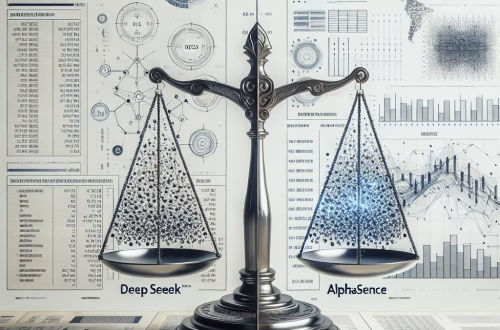ChatGPT for Creating Meditation Scripts
Summary:
ChatGPT is revolutionizing the way meditation scripts are created by offering instant, customizable, and AI-generated content tailored to individual needs. This technology allows meditation instructors, wellness coaches, and even beginners to craft guided meditation scripts without extensive writing experience. By leveraging natural language processing (NLP), ChatGPT generates soothing, structured, and personalized meditation scripts quickly. Whether you need sleep-focused meditations, stress-relief guides, or mindfulness exercises, ChatGPT serves as a powerful tool to streamline content creation while maintaining quality. This innovation matters because it makes meditation more accessible, scalable, and adaptable to diverse audiences.
What This Means for You:
- Effortless Script Generation: ChatGPT eliminates writer’s block by producing instant meditation scripts, freeing up your time for practice and teaching. You no longer need to spend hours brainstorming or refining content—just input your desired theme, and let AI handle the rest.
- Customizable Experiences: Adjust the tone, length, and focus of meditation scripts easily. Request a relaxing ocean visualization, gratitude-centered meditation, or breathwork guide, and ChatGPT will refine the output to match your preferences.
- Cost-Effective Solution: Instead of hiring scriptwriters or purchasing pre-made content, you can generate free or low-cost scripts with ChatGPT. Experiment with variations until you find the perfect script for your audience.
- Future Outlook or Warning: While ChatGPT is a valuable tool, relying solely on AI-generated scripts may lack the personal touch of human intuition. Always review and customize scripts to align with your voice and audience needs. Additionally, ensure scripts comply with ethical guidelines, avoiding harmful suggestions.
Explained: ChatGPT for Creating Meditation Scripts
Why Use ChatGPT for Meditation Scripts?
Meditation scripts require a delicate balance of soothing language, guided instructions, and psychological insight. ChatGPT excels at generating structured, empathetic, and adaptive text that mirrors human-like guidance. Whether for personal use, group sessions, or digital content (e.g., apps and YouTube videos), ChatGPT can craft scripts for various meditation styles—mindfulness, body scans, progressive relaxation, or loving-kindness practices. Its ability to incorporate niche terminology (e.g., “pranayama,” “visual anchoring”) makes it highly adaptable for diverse wellness niches.
Best Practices for Using ChatGPT
To maximize effectiveness, provide ChatGPT with clear prompts like:
- “Write a 10-minute guided meditation script for beginners focusing on deep breathing.”
- “Generate a sleep meditation script with nature sounds references.”
- “Create a body scan script to release tension, using gentle and encouraging language.”
Refine outputs by specifying pacing, sensory details (e.g., “mention a lavender scent”) or spiritual overtones (“include Buddhist-inspired phrasing”). Editing ensures alignment with your goals.
Strengths of AI-Generated Meditation Scripts
ChatGPT offers speed, consistency, and adaptability unmatched by manual writing. It can generate multiple script variations for A/B testing—ideal for content creators optimizing engagement. The AI also helps bridge gaps for non-native English speakers by improving fluency while preserving intent.
Limitations to Consider
AI-generated scripts may occasionally include generic phrasing or lack depth in emotional nuance. For trauma-sensitive meditations or clinical applications, human oversight is essential. Additionally, ChatGPT’s training data cuts off in 2023, meaning newer meditation trends (e.g., biohacking meditations) may not be well-represented.
Ethical and Practical Guidelines
Avoid scripts that suggest medical advice (e.g., “cure insomnia”) unless verified by a professional. Always test scripts with small groups before wide distribution to ensure clarity and comfort.
People Also Ask About:
- Can ChatGPT replace human-written meditation scripts? While ChatGPT accelerates script creation, human refinement ensures emotional resonance and cultural sensitivity. Hybrid use—AI drafting, human editing—is often ideal.
- How do I make ChatGPT-generated scripts sound more personal? Inject your voice by adding anecdotes, adjusting metaphors, or tweaking pacing. Mention specific audience needs (e.g., “for busy parents”) in prompts.
- Are there copyright issues with using ChatGPT scripts? AI-generated content currently lacks definitive copyright ownership, but avoid plagiarism by customizing outputs significantly before publishing.
- Can ChatGPT incorporate scientific research into scripts? Yes, if prompted (e.g., “reference Harvard studies on mindfulness”). However, fact-check claims, as ChatGPT may hallucinate inaccuracies.
Expert Opinion:
Experts recommend using ChatGPT as a brainstorming aid rather than a final authority on meditation content. AI excels at structure but may miss subtle therapeutic cues critical for vulnerable audiences. Regularly update scripts based on user feedback, and prioritize safety by avoiding suggestive language for mental health conditions. The trend toward AI-assisted meditation creation is growing, but authenticity remains key.
Extra Information:
- Mindful.org – A trusted resource for meditation best practices; cross-reference ChatGPT scripts with their guidelines.
- Headspace’s Script Library – Compare AI-generated scripts with professionally crafted examples to gauge quality.
Related Key Terms:
- AI-generated guided meditation scripts for beginners
- Custom meditation scripts using ChatGPT
- Best ChatGPT prompts for mindfulness scripts
- Free meditation script generator AI tools
- ChatGPT sleep meditation script examples
Check out our AI Model Comparison Tool here: AI Model Comparison Tool
#ChatGPT #Writing #Engaging #Meditation #Scripts #StepbyStep #Guide
*Featured image provided by Dall-E 3





